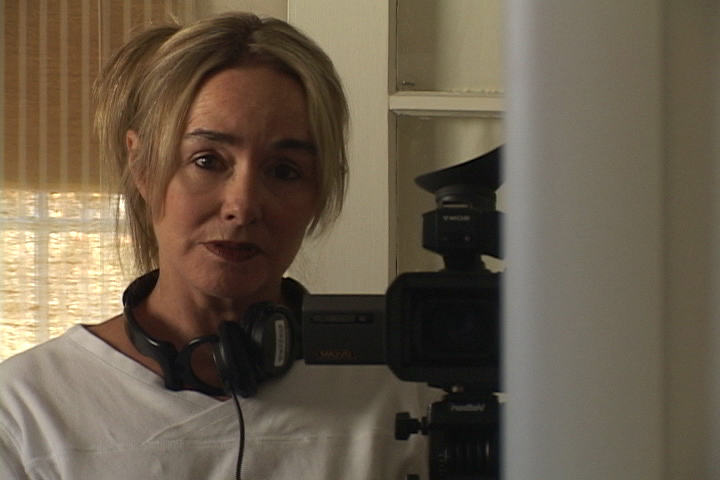
The film details a split that rocked the group, and three decades later, hurt feelings and deep emotions are still evident. Some members haven't spoken since they disbanded in 1979. "We were unbelievably supportive of each other, but our egos are what destroyed us," Irola said. Yet she is grateful for the experience. "These guys gave me support and ultimately provided me with a great beginning for my career." The group's feature films have held up over the years. Northern Lights and Over-Under, Sideways-Down, a film about working-class Americans in an urban setting, were prescient in their subject matter and style of filmmaking. Both mixed professional actors and real people from the locations where they were shooting.
In the early 1970s in San Francisco, Niger RPCV Judy Irola, now the head of cinematography in the USC School of Cinematic Arts, was part of a groundbreaking Marxist filmmaking collective called Cine Manifest
Cinema Manifesto
Documentary Examines Filmmakers '70s Exploits
In the early 1970s in San Francisco, Judy Irola, now the head of cinematography in the USC School of Cinematic Arts, was part of a groundbreaking Marxist filmmaking collective called Cine Manifest.
The group made two feature films and several smaller projects, all the while churning out memos and manifestos about every aspect of their lives together.
In 2002, six of the group's seven members had a reunion. The following year, there was a celebration in North Dakota for the 25th anniversary of its film, Northern Lights, which won the coveted Camera d'Or Prize at the Cannes Film Festival.
Northern Lights, the first feature film that Irola had shot, was singled out for its "dazzling cinematography." Another first was that she was the only woman in the collective. Female cinematographers are a rare breed to this day, it pains her to admit.
Out of these reunions came Irola's idea to produce and direct a film on the collective itself. What, she asked, were the lasting lessons from creating socially conscious films in a group that shared work and profits?
Marsha Kinder, a fellow cinematic arts professor, urged her to document the respective points of view of the collective members, all of whom went on to distinguished careers in film.
Irola found archival footage and stills, flew around the country to interview her former collaborators and received permission to use the music of the late David Schickele, brother of Peter Schickele of PDQ Bach fame, who as a filmmaker and composer had been part of the collective's circle of friends.
"A documentary about idealism and action" is how the DVD cover of her resulting 75-minute documentary, Cine Manifest describes it. The film also explains why the collective was called "combative." Its members had strong personalities and weren't shy about voicing their opinions on everything-including each other.
In the film, Irola and editor Nels Bangerter, who earned his MFA in film production at USC in 2005, cleverly highlight the members' pronouncements with typed phrases and memo fragments that appear as scraps of paper on the screen.
The film details a split that rocked the group, and three decades later, hurt feelings and deep emotions are still evident. Some members haven't spoken since they disbanded in 1979.
"We were unbelievably supportive of each other, but our egos are what destroyed us," Irola said. Yet she is grateful for the experience. "These guys gave me support and ultimately provided me with a great beginning for my career."
The group's feature films have held up over the years. Northern Lights and Over-Under, Sideways-Down, a film about working-class Americans in an urban setting, were prescient in their subject matter and style of filmmaking. Both mixed professional actors and real people from the locations where they were shooting.
Irola, the third woman to become a member of the American Society of Cinematographers, holds the Conrad Hall Chair in Cinematography. She is distributing Cine Manifest herself and plans to take it to several film festivals here and abroad have resulted in its U.S. premiere at the Mill Valley Film Festival, organized by the California Film Institute.
The film has debuted at the Denver International Film Festival, and invited to the Fargo Film Festival, which is one of the new hip festivals in the country. Irola is also receiving the Ruth Landfield prize, "for a film by or about women of Courage, Conviction and Passion."
She credits a James H. Zumberge Faculty Research and Innovation Grant for helping her make the film and said she couldn't have done it without help from USC colleagues, staff and students.












